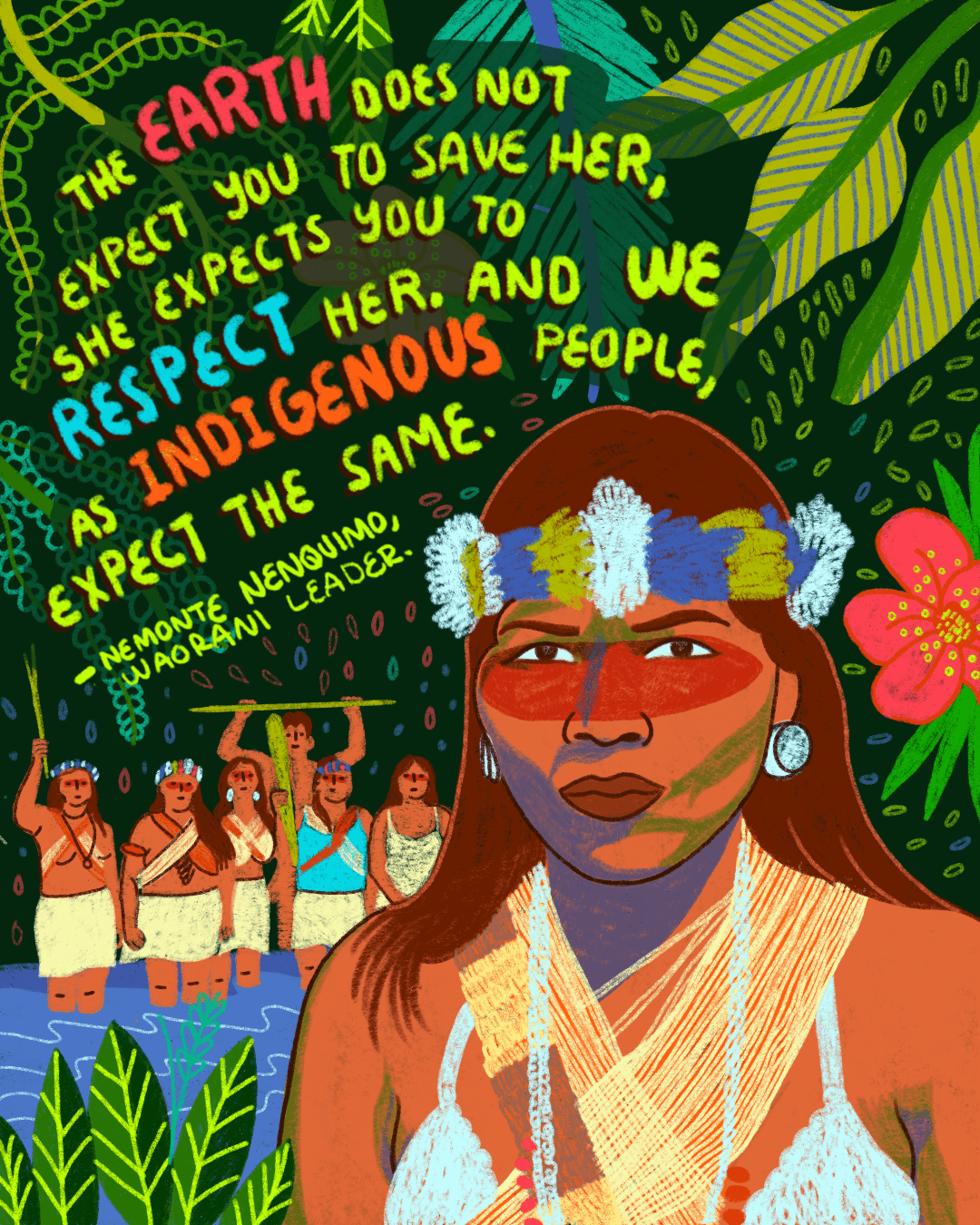Credits: @amazonfrontlines @humanafrida
In this episode of Il Bisonte Journal, the first to feature Waorani activist Nemonte Nenquimo, we ask ourselves if Western violence towards the Amazon is actually a call for help from those who have been able to protect their land.
What reaction does seeing an indigenous person induce in us? Obviously, at that moment, it doesn’t matter what kind of native they might be. Their cheekbones would be very high and they might have a tawny beard, or perhaps sweet facial contours and raven hair, which we wouldn’t notice at first. What matters, we know, is the straw skirt and pendants rattling in front of the cameras that have ventured into the savannah village to shoot the classic story that will appear on the early evening news. Our knowledge about those living at the margins of the West (never about us living at their margins) can basically be rejected without appeal. There are few men and women who recall the name of a distant people.
It is more often the West that bestows awards.
Nemonte Nenquimo is among them. In short: Nemonte has won an award. Specifically, the so-called Green Nobel. Guess where it comes from. Yes: the West. Specifically, the Goldman Environmental Foundation in San Francisco, California. We’ll tell you why she won the award in the Journal’s next issue. For now, just know that Nemonte is saving a piece of the Amazon rainforest. The Amazon. You wouldn’t think that the name is Western. The Amazons – mythical horse-riding warriors – never actually sailed the Atlantic, unlike some Spaniards who had read Greek tragedies.
Or rather, are we asking for help to save the West?
At 33 years old, with a 4-year-old daughter, Nemonte is saving the Waorani, her people. In her latest interview with the Goldman Foundation she declared: «Los gobiernos y las industrias nos están mostrando que no pueden ver más allá del hueco que están perforando». Those who devastate the environment cannot see beyond the hole they are digging. So let’s ask ourselves this: when we violently invade territories that are still protected by those we call indigenous (so as not to call them primitive), are we seeking new resources, or are we rather asking desperately for help to save the West?
